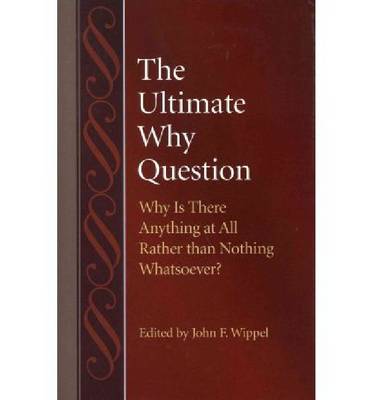This volume gathers studies by prominent scholars and philosophers about the question how have major figures from the history of philosophy, and some contemporary philosophers, addressed ""the ultimate why question"": why is there anything at all rather than nothing whatsoever? The authors take this question seriously, striving to go beyond accounting for the present state of reality as distinguished from a prior or subsequent state, to the more profound question of discerning why anything whatsoever exists.
The responses are varied: Lloyd P. Gerson considers Greek philosophy, and May Sim examines Chinese philosophy. Jon McGinnis explores a leading medieval Muslim philosopher, Avicenna, and volume editor John F. Wippel explores a leading medieval Christian philosopher, Thomas Aquinas. These chapters are followed by four responses from the modern period: Tad M. Schmaltz on Descartes; Daniel Dahlstrom on Leibniz, especially as he is understood by Heidegger; Edward C. Halper on Hegel; and, finally, Holger Zaborowski on F. W. J. Schelling. The final section of the book contains personal responses proposed by three contemporary thinkers who have addressed the problem in very different ways--Robert Cummings Neville, Brian Martine, and Nicholas Rescher.
Readers will gain a greater understanding and appreciation of an issue that has taxed the ingenuity of many philosophers through the centuries and continues to intrigue many thinkers today.
- ISBN13 9780813218632
- Publish Date 24 May 2011
- Publish Status Active
- Publish Country US
- Imprint The Catholic University of America Press
- Format Hardcover
- Pages 250
- Language English
